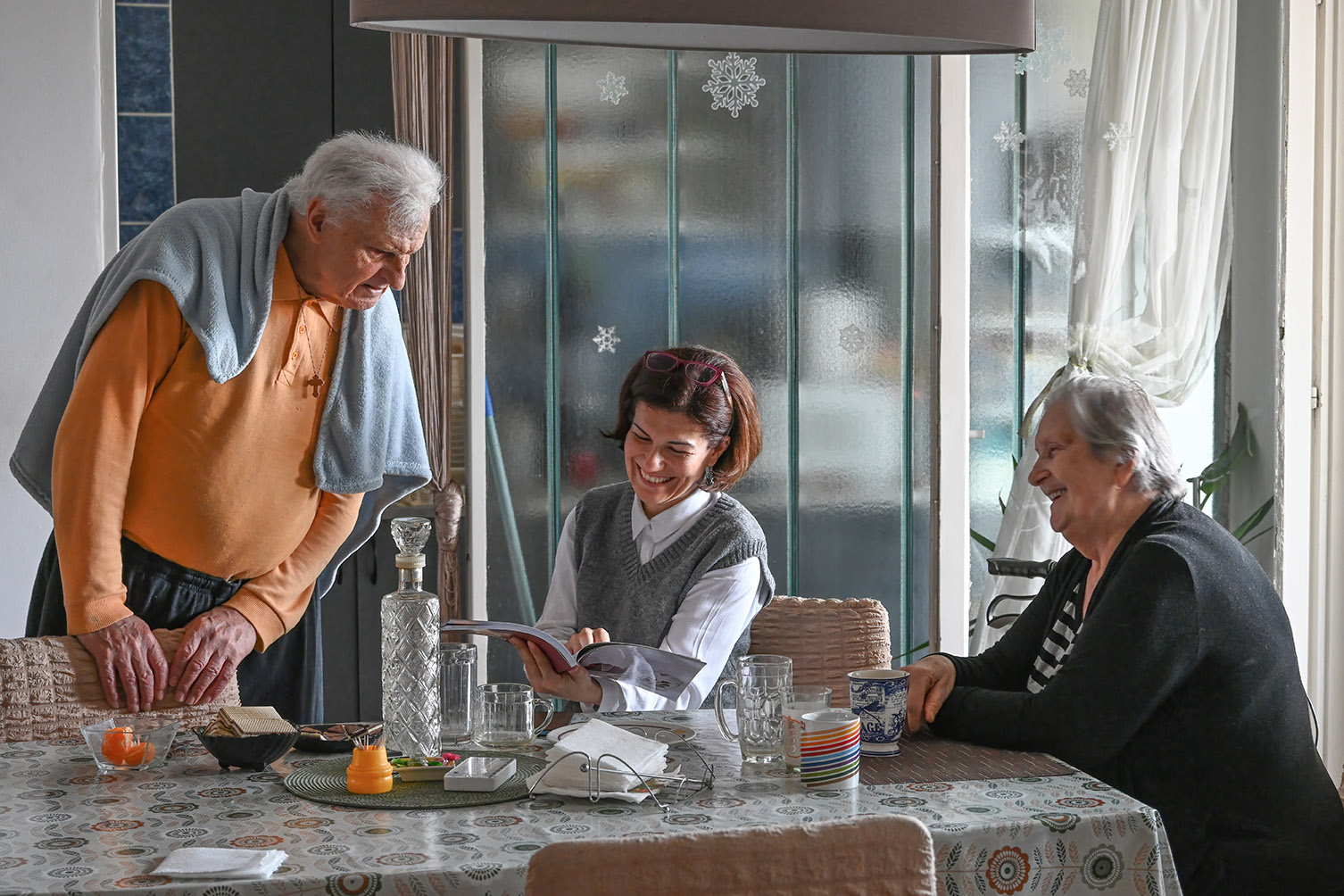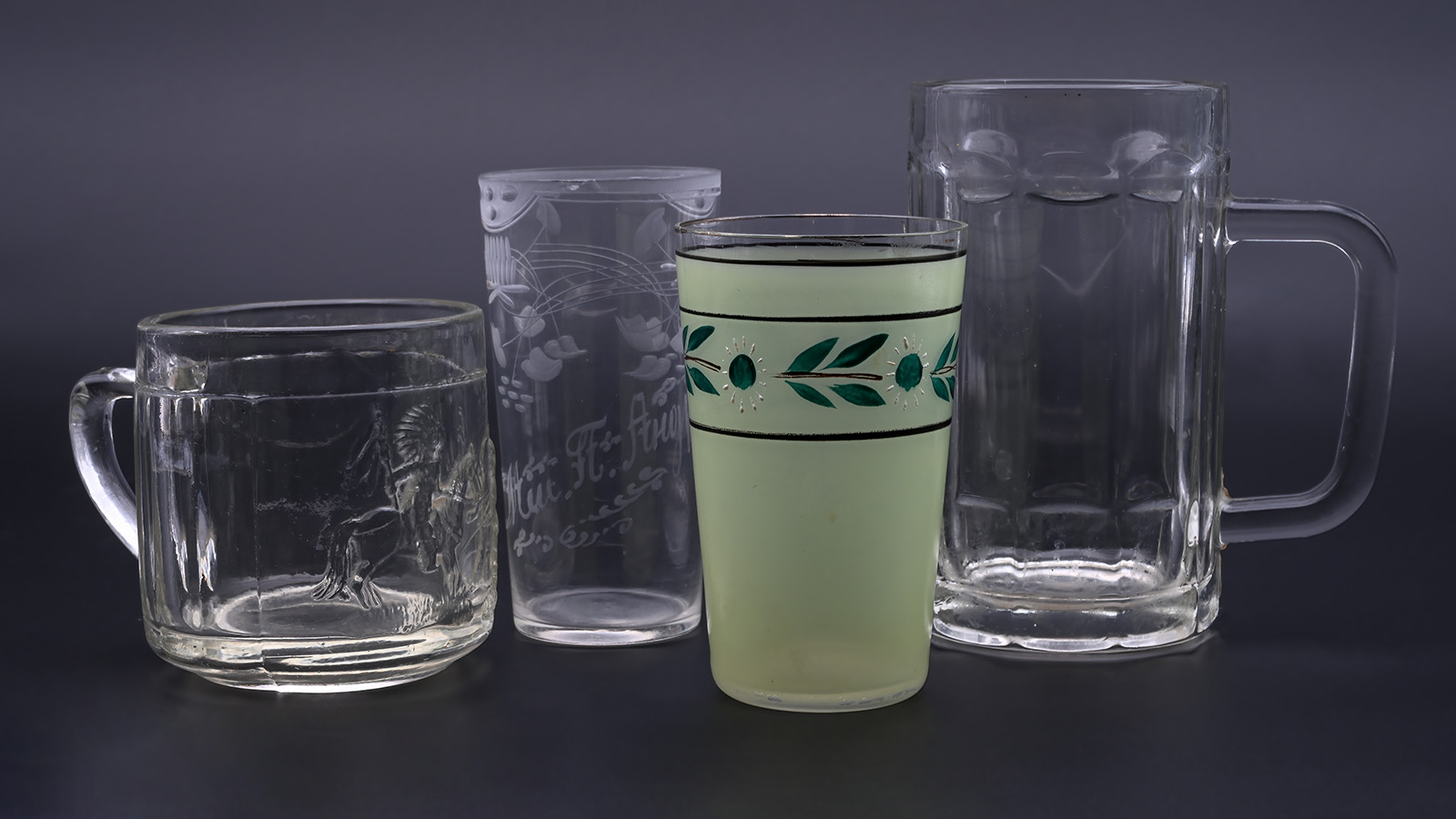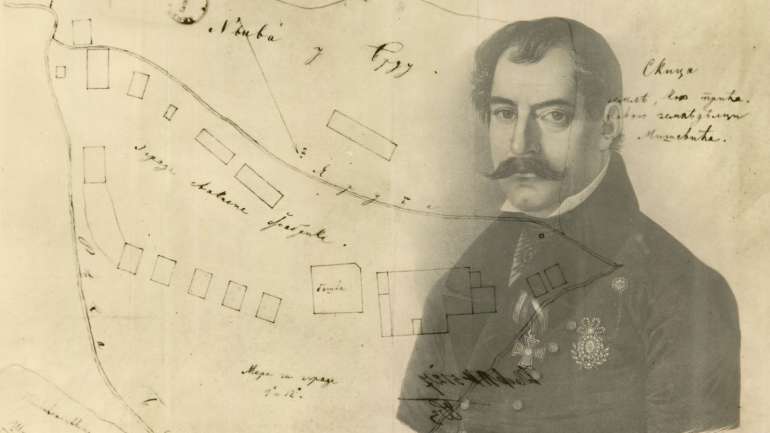By: Jasmina Trajkov, museum advisor
During our visit to our fellow citizens who own the works of Ilija Vukićević, whose exhibition we are opening soon, we were again guests of the kind Mrs. Dušica Milačić and her husband Tomа. We visited this couple for the first time in 2022, when we received as a gift the handiwork of Radmila Rajković, née Miljković, mother of Mrs. Dušica and sister of the Jagodina national heroine Rada Miljković, whose tragic fate we have already written about.
After we photographed Ika’s paintings owned by the Milačić family and arranged for their exhibition at the upcoming event, we presented our hosts with a new edition of the Regional Museum “Glass from the Collection of the Regional Museum of Jagodina”. After reviewing the publication, Mrs. Dušica decided to give us the glasses that have been in their house for more than three quarters of a century. Thus, the museum collection was enriched with seven more objects, of which four glasses produced at the Serbian Glass Factory in Paraćin stand out. These are a mug made of pressed colorless glass made in the period from 1930 to 1960 and the so-called “children’s glass” with a representation of Indians, which the Paraćin glass factory produced in the period from 1935 to 1960.
The most valuable objects in this gift are two glasses that belonged to Radmila Rajković and were received as a wedding gift at her wedding in 1939. The first glass is made of thin colorless glass with a rich engraved floral decoration and an engraved inscription: Mit. P. Andrejić. The second glass is also made of colorless glass. It is painted pale green. In the upper part, between two thin black lines, a frieze of green flowers with white petals and a black branch is painted, on which there are two green leaves at the top and bottom. Both are the work of the Serbian Glass Factory from the period 1920–1935, and the engraved glass has additional value as a unique product, because the engraved decoration was made to order by the customer.
As a reminder, Radmila Rajković was born in 1918 in the village of Belica near Jagodina. From 1939 she lived in Belgrade, where she married and worked in the “Moravija” sock factory. In Belgrade, she was an active participant in the Belgrade labor movement. As a member of the Communist Party, she participated in the action of burning the “Ford” garage in July 1941. She was discovered and arrested on September 5, 1941. She spent forty days in the Special Police of the Belgrade City Administration, where she was interrogated and tortured, and then on October 15, she was sent to the Banjica camp. At the time of her arrest, Radmila was pregnant but despite the torture and all the hardships, she gave birth to her daughter Dušica in the camp. Shortly after that, the child was taken from her and sent to an orphanage, and then a baby girl was given to Radmila’s mother. Radmila Rajković was called up for execution on September 11, 1944.
We would like to express our warmest gratitude to Dušica and Toma Milačić for their kindness, cooperation, and gifts to the Museum. The objects that Radmila made in the camp and intended for her family members and the glasses, part of her wedding gift, will be preserved and shown to current and future generations, thus preserving the memory of Radmila, a brave young woman whose life ended tragically, but also of her daughter who, thanks to her mother’s love and sacrifice, survived and today has her own children and grandchildren.






